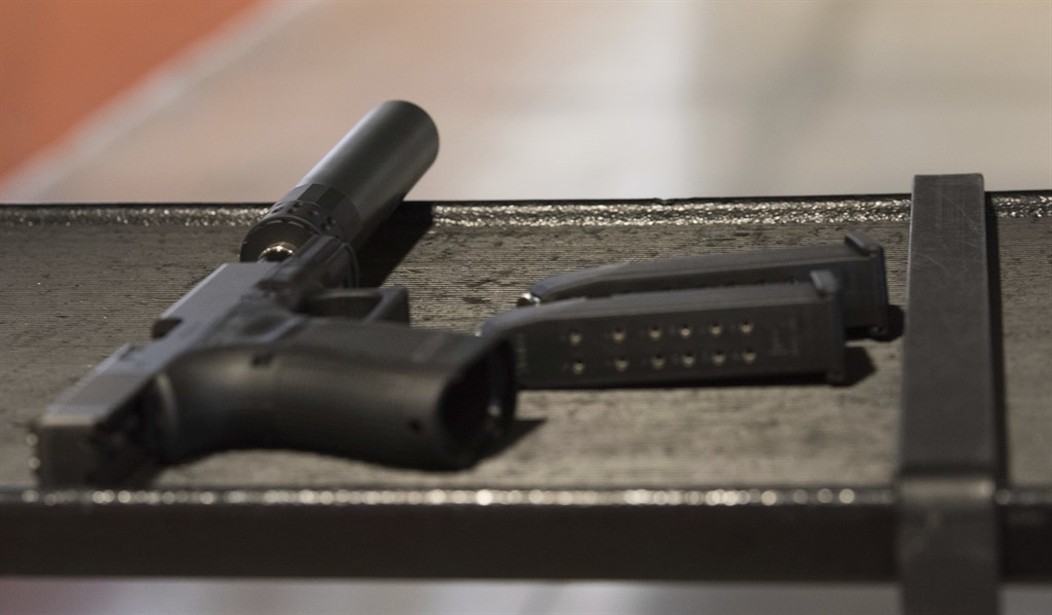I’ve been sitting on news about the introduction of a bill for several days waiting for more details to come out. On July 15th, 2022 HR 8399 – To amend the Internal Revenue Code of 1986 to repeal the National Firearms Act was introduced by Congressman Madison Cawthorn of North Carolina. The bill, which rolled out without any press release or fanfare, is finally available.
To amend the Internal Revenue Code of 1986 to repeal the National Firearms Act.
Be it enacted by the Senate and House of Representatives of the United States of America in Congress assembled,
SECTION 1. REPEAL OF NATIONAL FIREARMS ACT.
Chapter 53 of the Internal Revenue Code of 1986, and the item relating to such chapter in the table of chapters for subtitle E, are hereby repealed.
The arrival of the bill text offered not much more than the title did. The bill, should it become law, would abolish the National Firearms Act completely. Most Second Amendment supporters and self-identifying gun buffs know exactly what the National Firearms Act refers to, but for those who aren’t as familiar with the scope of what the act covers, here’s a simple explanation put out by the NRA.
National Firearms Act (NFA)
The National Firearms Act of 1934 (NFA) requires the registration, with the federal government, of fully-automatic firearms (termed “machineguns”), rifles and shotguns that have an overall length under 26 inches, rifles with a barrel under 16 inches, shotguns with a barrel under 18 inches, and firearm sound suppressors (termed “silencers”). The Gun Control Act of 1968 (GCA) placed “destructive devices” (primarily explosives and the like, but also including firearms over .50 caliber, other than most shotguns) under the provisions of the NFA. In 1994, the Treasury Department placed revolving-cylinder shotguns and one semi-automatic shotgun under the NFA.
The GCA prohibited the importation of fully-automatic firearms for private purposes and a 1986 amendment to the Act prohibited the domestic manufacture of fully-automatics for private purposes. However, short-barreled rifles and shotguns have becoming increasingly popular for home defense and defensive-skills-based marksmanship training and competitions, and sound suppressors have become increasingly popular for marksmanship training and competitions, and for hunting.
To have no more taxes levied against machineguns, silencers, short barrelled rifles and shotguns, etc. is commonsense.
When the National Firearms Act was introduced in 1934 there was the tiptoeing around the Constitutionality of the provisions in the law. The tiptoeing would amount to the opposite of commonsense and, in my opinion, would be smoke and mirrors. Wading through National Firearms Act: Hearings, Seventy-third Congress, Second Session, on HR 9066 will show the clever word salad workaround which made the National Firearms Act what we know of it today with minimal question.
Mr. LEWIS Now a very brief statement on this subject: Lawyer though I am , I have never quite understood how the laws of the various States have been reconciled with the provision in our Constitution denying the privilege to the legislature to take away the right to carry arms . Concealed – weapon laws , of course , are familiar in the various States ; there is a legal theory upon which we prohibit the carrying of weapons — the smaller weapons.
Attorney General CUMMINGS Of course we deal purely with concealable weapons . Machine guns , however , are not of that class . Do you have any doubt as to the power of the Government to deal with machine guns as they are transported in interstate commerce?
Mr. LEWIS I hope the courts will find no doubt on a subject like this, General ; but I was curious to know how we escaped that provision in the Constitution.
Attorney General CUMMINGS Oh , we do not attempt to escape it . We are dealing with another power , namely , the power of taxation , and of regulation under the interstate commerce clause . You see , if we made a statute absolutely forbidding any human being to have a machine gun , you might say there is some constitutional question involved . But when you say “ We will tax the machine gun ” and when you say that ” the absence of a license showing payment of the tax has been made indicates that a crime has been perpetrated ” , you are easily within the law .
Mr. LEWIS In other words , it does not amount to prohibition , but allows of regulation.
Attorney General CUMMINGS That is the idea . We have studied that very carefully.
While such a piece of legislation does not have a chance of being passed in both chambers of Congress, and signed by the Biden-Harris administration, it’s still nice to see some of our representatives push such measures forward. Most of the so-called “gun control” laws we have today were introduced several times or sat in waiting for the right opportunity to have them ushered into the spotlight. In some cases the right crisis needed to occur in order to push such bills into committees and subsequently to the floors of Congress. Not that something like that would happen today.
Meanwhile, we’re left wondering in a post NYSRPA v. Bruen world, if laws like the National Firearms Act would hold up to history, text, and tradition scrutiny.
We’ll be watching the progress of this piece of legislation, as well as any litigation concerning the National Firearms Act, and will report back on any meaningful revelations.








Join the conversation as a VIP Member